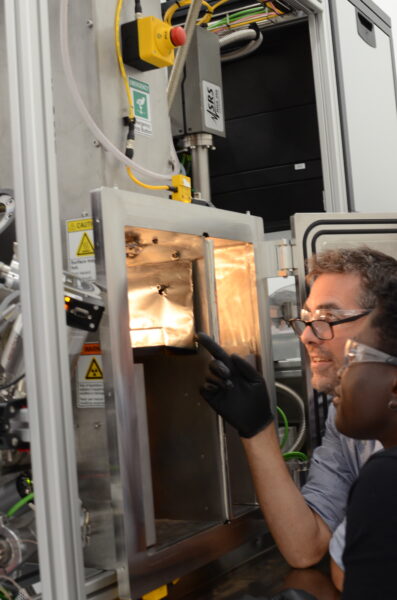
 An Associate Professor in the Department of Mechanical and Aerospace Engineering at North Carolina State University has been awarded the highly selective Defense Advanced Research Projects Agency (DARPA) Director’s Fellowship.
An Associate Professor in the Department of Mechanical and Aerospace Engineering at North Carolina State University has been awarded the highly selective Defense Advanced Research Projects Agency (DARPA) Director’s Fellowship.
Dr. Tim Horn was awarded the DARPA young faculty award (YFA) in 2022, an honor that only seven NC State faculty have ever received. Of the recipients of the YFA, only a select few are awarded the DARPA Directors Fellowship. Horn is now one of two faculty members at NC State to ever receive the Director’s Fellowship.
This fellowship is a selective extension of the DARPA Young Faculty Award (YFA) and is granted to top-performing YFA recipients who have demonstrated exceptional leadership and technical achievement. The Director’s Fellowship provides additional funding to further support Dr. Horn’s cutting-edge research in additive manufacturing (AM). Since its inception, this is the second DARPA Director’s Fellowship to be awarded to an NC State faculty member.
Horn’s awarded research project, titled “Electron Interactions with Microstructures and Defects During Additive Manufacturing,” focuses on overcoming a critical barrier in the AM process: the time-consuming and costly qualification of complex parts. His work has led to the development of a transformative, real-time monitoring system that parses electron interactions during AM that, when coupled with machine learning approaches, is leveraged to classify and quantify defects and microstructures as they evolve as they are being manufactured.
The next phase of the project will focus on the development of an integrated data-driven framework linking intrinsic material properties and the extrinsic properties derived from in-situ electron data with mechanistic models to understand how these features influence component performance. The overarching objective has the potential to revolutionize military logistics by enabling on-demand, first-time-right manufacturing of mission-critical components, significantly enhancing the operational readiness of U.S. defense systems.